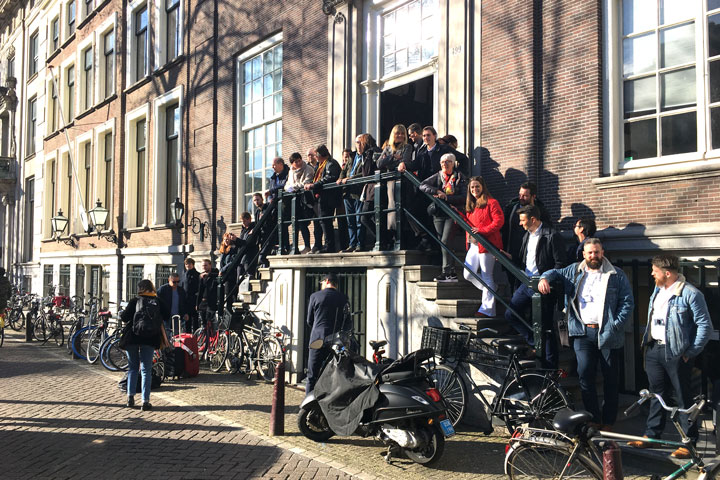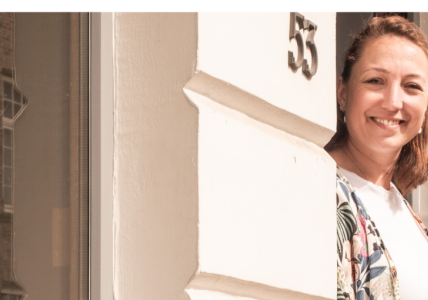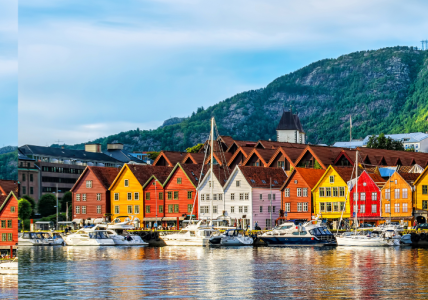In the award-winning Lean Landing project, business incubators and accelerators joined forces to help micro-SMEs break into foreign markets.
Lean Landing was designed to help small businesses grow by moving into markets overseas. Internationalisation is seen as a key driver of SME growth and hence job creation in Europe, but remains a tough challenge.
Inspired by the US-developed lean startup methodology, the project introduced a concept where SMEs skip the conventional first step of developing export strategies. Turning the traditional approach on its head, Lean Landing used its transnational set-up to help SMEs connect with potential partners and buyers abroad. Subsequently, the enterprises used this experience to fine-tune their concepts and strategies.

During a visit to Leeds, SMEs explored the possibilities on the UK market.
”We believe that SMEs can benefit from tuning into foreign markets at an early stage, so we wanted to explore a new and faster way for them to do this,” says project manager Jimmy Faustin Andersen of the Danish lead beneficiary, Business Hub Zealand.
Micro-SMEs and start-ups are the smallest of companies, with less than 10 employees. Yet in a globalised world, this is a perfect time to start looking beyond the home market, notes Andersen.
”Micro-SMEs are often more agile and open to opportunities. Getting a taste of foreign markets helps them adjust their mindset and get into gear for overseas business.”
Lasting impacts
The project closed a year ago but its legacy lives on. Andersen: ”Lean Landing clearly sparked a serious interest in overseas markets among the participating SMEs. They have gained a good idea of what it takes and how to adjust. A few have already made their way into foreign markets. Others are preparing for success abroad by adjusting their processes or adding new staff.”
Jimmy Faustin Andersen highlights the project’s blueprint providing advice for others wishing to apply the lean landing concept.

A Lean Landing partner meeting in Denmark.
By project end, 276 SMEs had participated in its activities and 169 had joined trips abroad, and their feedback was very positive. One of them was Meptek, a Danish micro-SME that equips young people with communication skills, using virtual reality (VR) and 360 degrees cameras as learning tools.
Meptek’s managing director Jakob Friis says: ”Thanks to the support from Lean Landing, we had the chance to visit the UK, which opened our eyes to the opportunities in this market. It also inspired us to integrate VR more strongly in our learning programme. We still plan to move abroad although our plans for the UK are currently on hold due to the uncertainties of Brexit and Covid-19. Meanwhile, our increased focus on VR has turned into a key asset in the home market.”
Lean Landing was a fantastic project. It helped us discover our unique strengths and made us aware of the potential of foreign markets.
Recognition and awards
The project’s success did not go unnoticed: Lean Landing won the prestigious European Enterprise Awards 2018 and featured in Euronews.
Lean Landing also made its mark within the lead partner organisation itself. Project controller Jens Peter Bech says:
”At Business Hub Zealand, we have integrated the Lean Landing experience in the way we operate and we continue using the lean principles. For example, 15 SMEs and micro-SMEs recently joined a trip to Germany that we organised in collaboration with Seafood International.”
“Prior to the project, we didn’t have relations to any business hubs in other countries, so we had to use google to find our partners!" says Jens Peter Bech.
"Taking the role as lead partners taught us how to establish a functional partnership across borders. We were able to build a transnational network of business hubs that remains very useful. Our long-term vision is to take it to the European level,” he concludes.

A proven concept
SMEs obtained valuable market knowledge and business contacts in foreign markets. The project’s approach is shared in a blueprint.
A lasting network
The partners created a transnational network of business hubs in the North Sea Region. Today, the network still generates positive spinoffs.
European recognition
Lean Landing won the grand jury prize of the European Enterprise Awards 2018 and was featured by Euronews.



